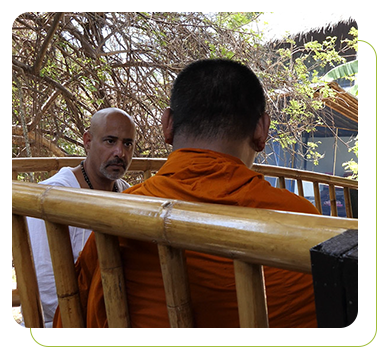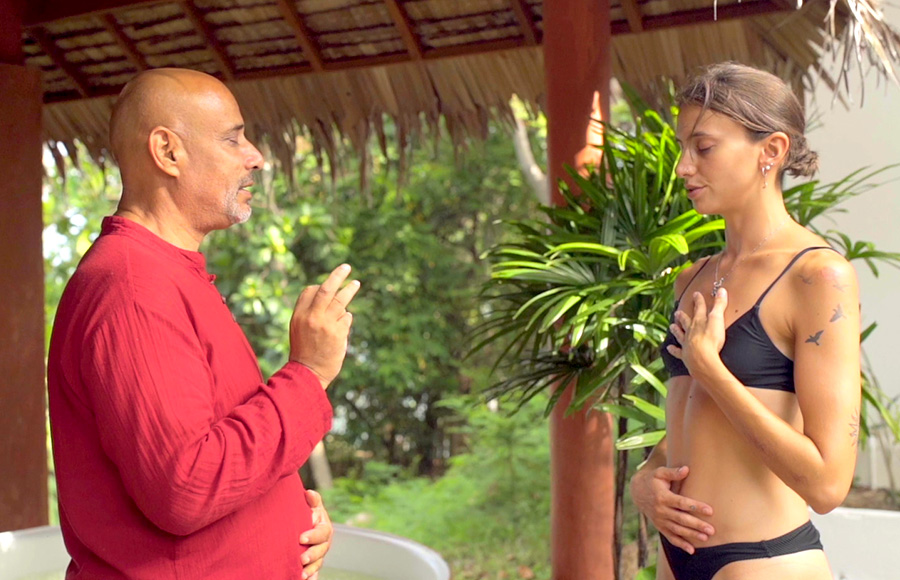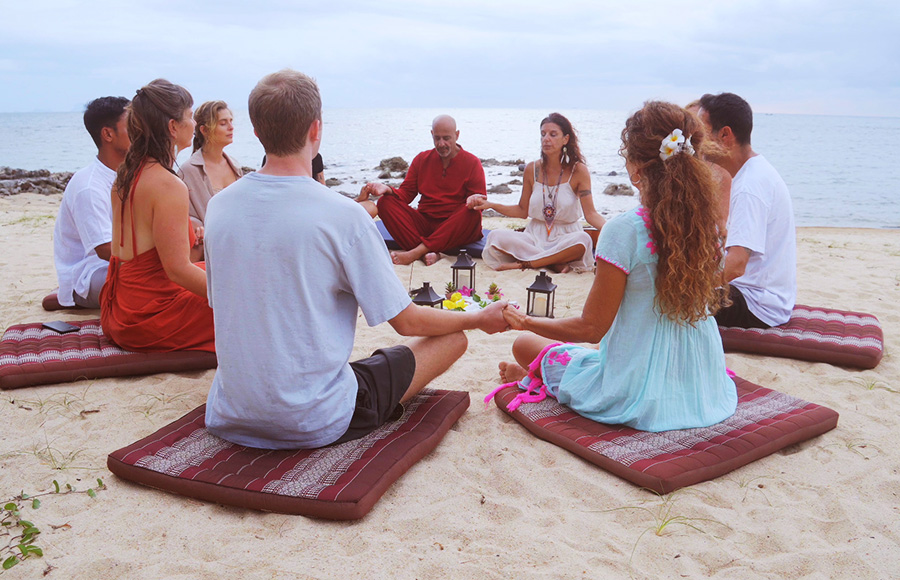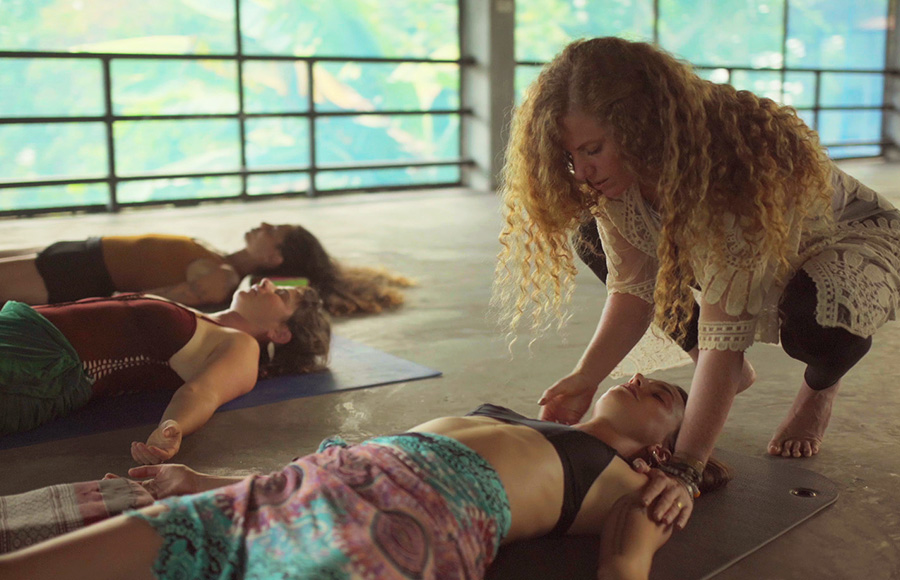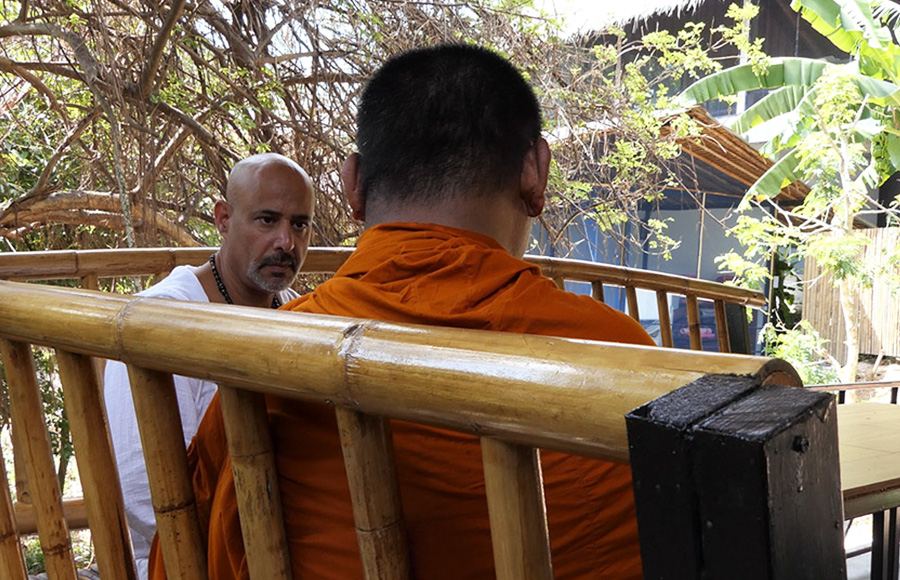Nutrition and Healing: How Food Supports Recovery
05 min read

Feeding the Body That’s Learning to Trust Again
Recovery begins with nourishment — not just of the mind and spirit, but of the body that carried the pain.
After years of stress, poor diet, or substance use, the body often arrives in survival mode: depleted, inflamed, and exhausted.
At Holina Rehab Thailand, we believe that healing happens from the inside out.
That’s why nutrition is a vital part of every client’s recovery journey — not as a diet, but as medicine.
Because when the body is fed with balance, the mind becomes clearer, the heart steadier, and the spirit more at peace.
Food becomes more than fuel — it becomes healing.
The Connection Between Nutrition and Recovery
Addiction depletes the body.
Substances interfere with digestion, absorption, and neurotransmitter production — the very systems that regulate mood and energy.
Malnutrition can lead to:
Fatigue and poor concentration
Mood swings, anxiety, or depression
Sleep disturbances
Weakened immunity and inflammation
Cravings for sugar or stimulants
When these physical imbalances are addressed through nutrition, the foundation for emotional and psychological recovery becomes much stronger.
At Holina, we view every meal as an opportunity to rebuild — cell by cell, moment by moment — the vitality that addiction once eroded.
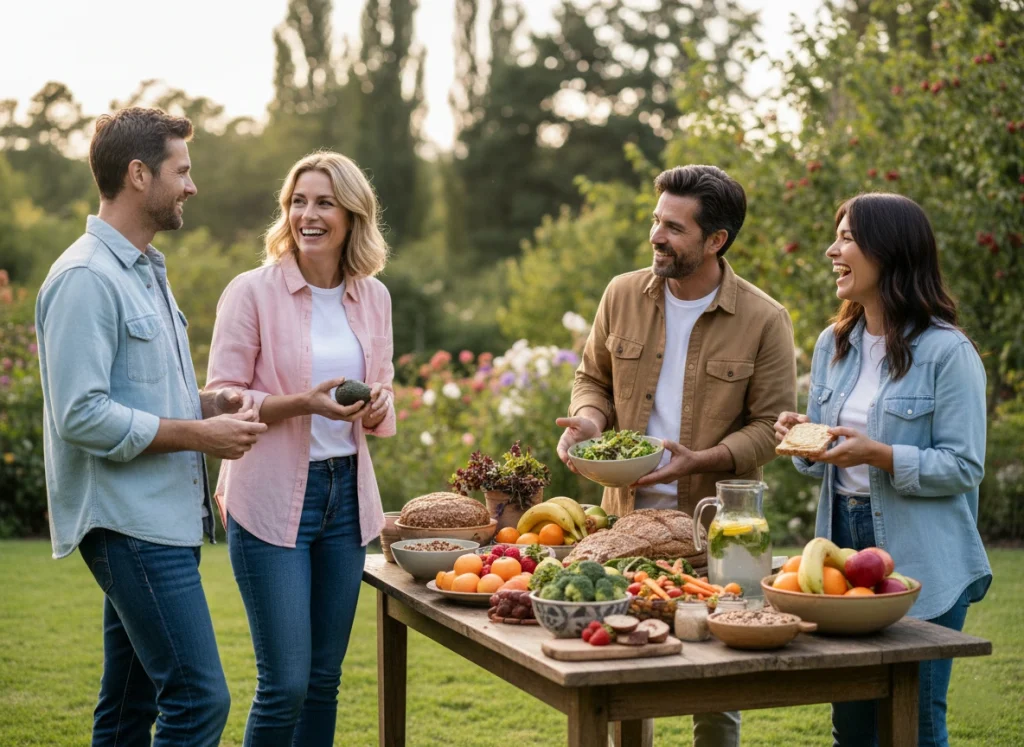
The Holina Nutrition Philosophy
Holina’s approach to nutrition blends science, mindfulness, and nourishment as care.
We don’t count calories or enforce rigid plans. Instead, we focus on restoring balance, vitality, and joy in eating.
Our philosophy rests on three principles:
Wholeness — choosing natural, whole foods that nourish body and mind.
Mindfulness — cultivating awareness and gratitude in how we eat.
Healing — using food to support detoxification, balance mood, and strengthen immunity.
Food at Holina isn’t restrictive — it’s restorative.
We honor that recovery is about adding nourishment, not removing pleasure.
What the Body Needs in Recovery
When the body begins to heal, its nutritional needs change dramatically.
Clients may feel hungry for the first time in years, or crave specific foods as their systems rebalance.
Holina’s nutrition team designs personalized meal plans to support each phase of recovery — detox, stabilization, and renewal.
1. Rebuilding Brain Chemistry
Substances like alcohol, cocaine, and opioids deplete dopamine and serotonin — the brain’s “feel-good” messengers.
To restore balance, we include foods rich in:
Tryptophan (found in bananas, seeds, and eggs) to boost serotonin
Tyrosine (in fish, dairy, and legumes) to support dopamine production
Omega-3 fatty acids (from salmon, chia seeds, and walnuts) for brain health
These nutrients help regulate mood, focus, and emotional resilience.
2. Restoring Gut Health
The gut produces nearly 90% of the body’s serotonin — which means digestion directly affects mood.
We support gut repair with:
Probiotic-rich foods (yogurt, kimchi, kefir)
Prebiotic fibers (sweet potato, oats, apples)
Hydration and gentle detox herbs
A healthy gut supports a calm mind — a truth ancient medicine has known for centuries.
3. Supporting Liver and Detox Systems
During recovery, the liver works hard to eliminate toxins.
We assist this process naturally through foods that support liver function:
Leafy greens, beets, and cruciferous vegetables
Lemon water and herbal teas (turmeric, dandelion, ginger)
Adequate protein for cell repair
Our medical team works closely with chefs and nutritionists to ensure detox support is both safe and nourishing.
The Role of Blood Sugar Balance in Emotional Stability
Many people in recovery experience mood swings, fatigue, or irritability due to unstable blood sugar levels.
At Holina, we emphasize steady energy — through balanced meals that include protein, complex carbohydrates, and healthy fats.
Frequent, nutrient-dense meals help:
Reduce sugar cravings
Stabilize mood
Support consistent energy
Improve focus and sleep quality
This isn’t just physical — it’s emotional stability through nourishment.
Mindful Eating: Turning Meals into Medicine
Healing through food isn’t only about what you eat — it’s also how you eat.
At Holina, we practice mindful eating — slowing down, breathing, and savoring every bite.
Meals become moments of presence, not distraction.
Clients are invited to notice colors, textures, and aromas — to reconnect with the sensory joy of nourishment.
“For years, I ate to escape. At Holina, I learned to eat to connect — to feel gratitude instead of guilt.”
— Holina client, Germany
This mindfulness brings peace to the table — transforming food from fuel into ceremony.

Holistic Nutrition in Action: A Day at Holina
Each meal at Holina is designed to support healing, balance, and enjoyment.
Our chefs prepare fresh, locally sourced meals infused with care and consciousness.
A typical day’s menu might include:
Breakfast:
Coconut chia pudding with tropical fruit, turmeric tea, and whole-grain toast.
Lunch:
Grilled fish or tofu with brown rice, steamed greens, and a citrus-ginger dressing.
Snack:
Homemade hummus with vegetable sticks or fruit smoothie.
Dinner:
Thai-style curry with quinoa, fresh herbs, and lemongrass soup.
Evening drink:
Calming chamomile or lemongrass tea before bed.
Each dish is created not just to nourish, but to comfort — reminding clients that healing can be delicious, too.
Healing Nutrients: Nature’s Medicine Cabinet
Holina’s nutrition team draws on the therapeutic properties of whole foods to support recovery at every level.
Key Healing Nutrients and Their Roles
B vitamins — support nervous system repair and reduce fatigue.
Magnesium — calms the nervous system and promotes sleep.
Zinc — aids in immunity and mood balance.
Antioxidants (Vitamin C & E) — protect against oxidative stress from substance use.
Amino acids — rebuild neurotransmitters and muscle tissue.
Each nutrient works synergistically — strengthening the body’s natural healing intelligence.
Nutrition and Mental Health: The Food–Mood Connection
Food directly affects mood.
Deficiencies in certain nutrients can mimic or worsen depression, anxiety, and irritability — conditions that often accompany addiction.
By restoring nutritional balance, clients often report:
Improved mood and energy
Sharper focus and memory
Less anxiety or restlessness
Greater emotional stability
This shift is often one of the most profound — the realization that nourishment itself is medicine.

The Role of Water and Hydration
Hydration is the simplest yet most overlooked aspect of recovery.
Dehydration can cause fatigue, irritability, and confusion — symptoms that mimic emotional distress.
At Holina, clients are encouraged to hydrate consistently throughout the day, with herbal teas, coconut water, and infused waters.
Hydration is especially crucial during detox, when the body is flushing out toxins.
Every sip becomes a small act of renewal.
Cooking as Therapy
For many, the act of cooking becomes part of healing.
Clients are invited to join workshops that explore food as creativity and mindfulness — chopping, tasting, and sharing meals as acts of self-expression.
Cooking therapy helps:
Rebuild self-care habits
Reconnect to sensory joy
Reduce anxiety through repetitive, mindful action
Foster community and teamwork
“I hadn’t cooked for myself in years. Preparing food at Holina became my meditation — a way to care for myself again.”
— Holina alumni, Australia
Through this, food becomes more than sustenance — it becomes a mirror for self-love.
Nutrition for Long-Term Recovery
When clients leave Holina, our nutrition team provides personalized guidance to sustain healthy habits.
These plans include:
Balanced meal templates
Shopping and cooking tips
Mindful eating exercises
Supplement recommendations (if necessary)
The goal is not perfection — it’s sustainability.
We encourage small, consistent changes that support both body and mind long-term.
Recovery continues through every meal — each one a reminder of care and choice.

Cultural and Spiritual Nourishment
Thailand’s vibrant food culture adds another dimension to the Holina experience.
Each meal is infused with the spirit of the island — colorful, fresh, and full of life.
Clients often describe meals as spiritual moments — times of gratitude and grounding.
In Buddhist culture, food is seen as both a gift and a teacher — reminding us to live in awareness and respect for what sustains us.
At Holina, every plate becomes a quiet offering — a celebration of nourishment, community, and rebirth.
The Energy of Food: Beyond Nutrition
Holina’s holistic team teaches that food carries energy — not just nutrients.
When we eat with gratitude, we absorb more than vitamins; we absorb intention, care, and vitality.
That’s why our chefs prepare meals with mindfulness and love.
The energy behind food becomes part of the healing itself — subtle, but deeply felt.
Clients often say they can “taste the care.”
And that care becomes part of the recovery process — one that feeds not just the stomach, but the soul.
Stories of Nourishment and Renewal
“I arrived depleted — physically and emotionally. The meals at Holina became part of my recovery rhythm. I felt myself come alive again.”
— Holina client, UK
“It’s hard to explain, but I started feeling emotions again after eating real, nourishing food.”
— Holina graduate, Singapore
“Nutrition was more than food. It was care, beauty, and balance — everything addiction had taken from me.”
— Holina alumni, Germany
These stories show that when we feed the body with love, the heart begins to heal too.
FAQs About Nutrition at Holina Rehab
Q1: Is the Holina diet vegetarian or vegan?
We offer both options. Meals are primarily plant-based with fresh seafood or lean proteins for those who choose.
Q2: Can Holina accommodate special dietary needs?
Yes. We cater to allergies, intolerances, and cultural or religious preferences with care.
Q3: How does nutrition support emotional healing?
By balancing blood sugar, restoring neurotransmitters, and supporting gut health, nutrition stabilizes mood and clarity.
Q4: Do clients learn to cook or maintain these habits at home?
Yes. We offer workshops and personalized plans to make continued healthy eating simple and sustainable.
Q5: What if I struggle with eating due to trauma or past habits?
Our therapists and nutritionists collaborate to support gentle, compassionate reintroduction to mindful eating.
Conclusion: Nourishment as a Form of Love
Food is one of the purest expressions of healing.
It rebuilds, replenishes, and reminds us that care can be as simple as feeding ourselves well.
At Holina Rehab Thailand, we believe nutrition isn’t just science — it’s soul work.
It’s the art of learning to care for the body you once neglected and to honor it as the sacred vessel of your recovery.
Every meal becomes an act of gratitude.
Every bite, a step back to balance.
And every breath, a reminder that healing — like nourishment — begins within.
Begin your healing journey with Holina today.
Get back to yourself — body, mind, and spirit.
About Me
Ian Young
Ian Young is the Global Manager at Holina Care Centres in Koh Phangan, Thailand. Ian oversees the rehabilitation programs that blend the 12 Step model, Psychology, Counselling, Coaching, Somatic and many other therapeutic engagements, alongside various evidence-based therapies with holistic healing practices. Holina Rehab treats addictions, trauma, anxiety, depression, and other emotional challenges, offering comprehensive care in a serene resort environment. Ian, a charismatic speaker and author of “It’s Not About Me” leveraging his own recovery journey from addiction to inspire and guide others toward a fulfilling, addiction-free life.
Recent Blogs
-
29 Jan, 2026
The Ultimate Guide to 12-Step Rehab in Thailand

















